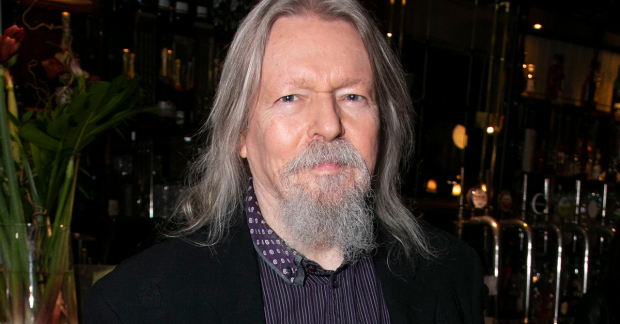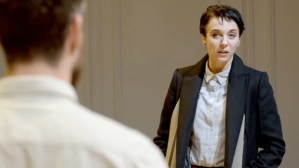Christopher Hampton on Youth Without God, The Son and A German Life
The playwright has enjoyed a stellar 2019

© Dan Wooler for WhatsOnStage
Even by Christopher Hampton's standards, 2019 is turning into an extremely productive year for the British playwright, director and translator. Maggie Smith returned to the stage for the first time in over a decade to star in his play A German Life, whilst the success of his translation of French play The Son is there for all to see. After an acclaimed run at the Kiln, the show has transferred to the Duke of York's theatre and will be available to view until the beginning of November.
The following interview with Hampton touches on these successes and also explains the major themes behind another one of his plays due to start this month, Youth Without God at The Coronet Theatre.
What is Youth Without God about?
It's about a teacher in a small town in mid 1930s Bavaria, when hysteria is rising and the Nazis are pushing their agenda. The teacher reprimands a pupil who has written a racist remark in an essay and finds himself in hot water with the headmaster when the boy's father complains. The plot takes a very unexpected turn because the boy who has complained is murdered on a kind of Hitler youth outing, which were compulsory for all teenage children at that time. From there, the teacher acquires a moral imperative that he never had before – he decides that in this kind of society you cannot just slide by and let things happen, you must tell the truth.
Would you say the play is really about truth and morality then?
Well it's about maintaining your integrity in an insane society, in a society like Nazi Germany or any others you can think of right now – there are many alarming developments of late. These subjects suddenly seem to be very much relevant.
What makes you feel strongly about these subjects?
I've always been very interested in certain themes and they've recurred on and off through my work- racism, prejudices of all kinds and the victims of those prejudices. In this year with Youth Without God and my other play A German Life, I have sort of narrowed down to a particular historical moment – that very dangerous point between somebody idiotic and dreadful being elected, and the consequences of that election.
It seems to me that a lot of your plays are interested in human behaviour?
I think that's fair and they also to try to take an open minded view towards human behaviour, however strange, bizarre or unsympathetic it may seem, because there's usually something rather interesting behind it.
Could you explain the story of Stephanie (Youth Without God director, Stephanie Mohr) and how you've come to have an Austrian director?
Well Anda (artistic director and CEO The Coronet Theatre, Anda Winters) was very interested in bringing someone from Europe to direct this and I had seen a couple of Stephanie's productions in Austria when I was working there. I admired them very much so I recommended her and she came over and met Anda and it went from there.
Do you think it will be a different play than if it had an English director?
I feel it is sort of reassuring to have someone from the region, it seems it is bound to be a bit more authentic. But it is just the icing on the cake really, the play is the play. It is very good to have someone who has that background and knows the national character though.
So what do you think audiences might take away?
Well first of all I think it's a very entertaining and intriguing story – I think you'll want to know what happens next. But behind all that I hope audiences see a kind of contemporary resonance that relates to the times we are going through at the moment.


















